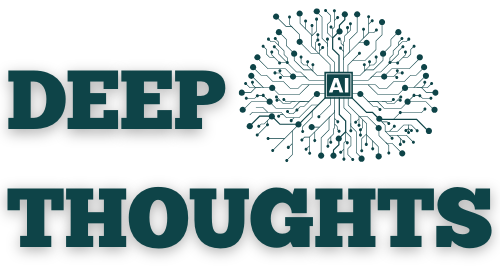AI Learning & Mastery: Roadmap to Becoming an AI Expert
AI Learning & Mastery: Intelligence (AI) is one of the most transformative technologies of our time, driving innovation across industries and creating exciting career opportunities. Whether you’re a beginner looking to get started or a professional aiming to master advanced AI concepts, learning AI is a journey that requires the right resources, strategies, and mindset. In this article, we’ll explore how to learn and master AI, including key skills, tools, and actionable steps to help you succeed.
Why Learn AI?
AI is reshaping the world, and the demand for AI skills is skyrocketing. Here’s why learning AI is worth your time:
- High Demand: AI professionals are among the most sought-after in the job market, with roles like data scientists, machine learning engineers, and AI researchers in high demand.
- Lucrative Careers: AI roles often come with competitive salaries and opportunities for growth.
- Versatility: AI skills are applicable across industries, from healthcare and finance to entertainment and retail.
- Innovation: AI empowers you to create cutting-edge solutions and solve complex problems.
Key Skills for AI Learning & Mastery
1. Foundational Knowledge
Before diving into AI, build a strong foundation in:
- Mathematics: Linear algebra, calculus, probability, and statistics.
- Programming: Python is the most popular language for AI, followed by R and Julia.
- Data Analysis: Learn how to clean, analyze, and visualize data using tools like Pandas, NumPy, and Matplotlib.
2. Core AI Concepts
Understand the fundamental concepts of AI, including:
- Machine Learning (ML): Supervised, unsupervised, and reinforcement learning.
- Deep Learning (DL): Neural networks, convolutional neural networks (CNNs), and recurrent neural networks (RNNs).
- Natural Language Processing (NLP): Text analysis, sentiment analysis, and language models.
- Computer Vision: Image recognition, object detection, and video analysis.
3. Tools and Frameworks
Familiarize yourself with popular AI tools and frameworks, such as:
- TensorFlow and PyTorch: For building and training machine learning models.
- Scikit-learn: For implementing traditional ML algorithms.
- Keras: For simplifying deep learning model development.
- OpenAI and Hugging Face: For working with advanced NLP models.
4. Practical Experience
Hands-on projects are crucial for mastering AI. Work on real-world problems to apply your knowledge and build a portfolio.
Steps to Learn and Master AI
1. Start with the Basics
- Online Courses: Platforms like Coursera, edX, and Udacity offer beginner-friendly AI courses.
- Recommended: Andrew Ng’s Machine Learning course on Coursera.
- Books: Read foundational books like Artificial Intelligence: A Modern Approach by Stuart Russell and Peter Norvig.
2. Practice Coding
- Learn Python: Focus on libraries like NumPy, Pandas, and Matplotlib.
- Build Small Projects: Start with simple projects like a spam classifier or a recommendation system.
3. Dive into Machine Learning
- Understand Algorithms: Learn about regression, classification, clustering, and decision trees.
- Experiment with Scikit-learn: Implement ML algorithms on datasets from platforms like Kaggle.
4. Explore Deep Learning
- Study Neural Networks: Learn how they work and how to train them.
- Use TensorFlow or PyTorch: Build and train deep learning models for tasks like image recognition.
5. Work on Real-World Projects
- Kaggle Competitions: Participate in Kaggle challenges to solve real-world problems and learn from the community.
- Personal Projects: Build projects that interest you, such as a chatbot, image classifier, or stock price predictor.
6. Stay Updated
- Follow AI Research: Read papers from conferences like NeurIPS, ICML, and CVPR.
- Join Communities: Engage with AI communities on platforms like GitHub, Reddit, and LinkedIn.
Resources for AI Learning
Online Courses
- Deep Learning Specialization by Andrew Ng (Coursera)
- AI For Everyone by Andrew Ng (Coursera)
- Fast.ai Practical Deep Learning for Coders
Books
- Deep Learning by Ian Goodfellow, Yoshua Bengio, and Aaron Courville
- Hands-On Machine Learning with Scikit-Learn, Keras, and TensorFlow by Aurélien Géron
Tools and Platforms
- Kaggle: For datasets, competitions, and tutorials.
- Google Colab: For running AI models in the cloud.
- GitHub: For sharing code and collaborating on projects.
Tips for Mastering AI
- Be Consistent: Dedicate time regularly to learning and practicing AI.
- Focus on Fundamentals: Build a strong foundation before tackling advanced topics.
- Learn by Doing: Apply your knowledge to real-world problems and projects.
- Collaborate: Join study groups or online communities to learn from others.
- Stay Curious: AI is a rapidly evolving field—keep exploring new tools, techniques, and research.
Challenges to Overcome
- Complexity: AI concepts can be challenging, but persistence and practice will pay off.
- Resource Intensity: Training AI models may require powerful hardware or cloud resources.
- Keeping Up: The field evolves quickly, so continuous learning is essential.
Conclusion
Learning and mastering AI is a rewarding journey that opens doors to exciting career opportunities and innovative projects. By building a strong foundation, gaining hands-on experience, and staying updated with the latest trends, you can become an AI expert and contribute to shaping the future of technology.
The future belongs to those who embrace AI. Are you ready to start your journey?

